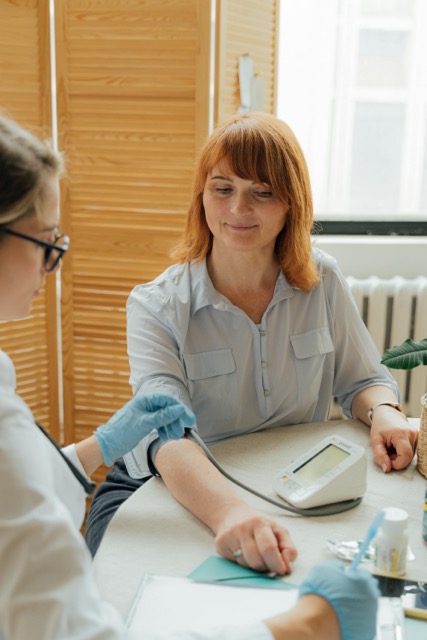If you’re trying to conceive or monitor your fertility, understanding the best time to test your fertility hormones is essential. Whether you’re testing for FSH (Follicle-Stimulating Hormone), LH (Luteinizing Hormone), AMH (Anti-Müllerian Hormone), or estradiol, the timing of these tests can make all the difference in getting accurate and meaningful results.
In this article, we’ll explore the best days of your menstrual cycle to test for fertility hormones, why timing matters, and how to interpret your results to make informed decisions about your fertility health.
Table of Contents
ToggleWhy Timing Matters for Fertility Hormone Testing
Fertility hormones, such as FSH, LH, and estradiol, fluctuate throughout your menstrual cycle. Testing them at the wrong time can lead to inaccurate readings, making it harder to assess your fertility status accurately.
Knowing the right time to test these hormones can give you a more accurate picture of your ovarian reserve, ovulation health, and fertility potential. This can also guide your doctor in determining the most appropriate treatments if you’re struggling to conceive.
Best Time to Test for Key Fertility Hormones
1. FSH (Follicle-Stimulating Hormone)
FSH is one of the primary hormones responsible for stimulating the growth of follicles in the ovaries. It helps trigger ovulation, the process where an egg is released from a mature follicle. Testing FSH levels can provide insights into your ovarian reserve and whether your ovaries are responding well to hormonal signals.
- Best Time to Test FSH: Day 3 of Your Menstrual Cycle
- Why: FSH levels are at their baseline during the first few days of your menstrual cycle, making Day 3 the ideal time to assess ovarian function.
- What It Indicates: High FSH levels can indicate low ovarian reserve, while normal or low FSH levels suggest good ovarian function. Elevated FSH levels are often a sign that your ovaries are not responding well to hormonal stimulation, which can signal fertility issues.
2. LH (Luteinizing Hormone)
LH is the hormone that triggers ovulation. A surge in LH signals the release of a mature egg from the ovary, making it a key indicator of ovulation.
- Best Time to Test LH: Mid-cycle, typically around Day 14 (for a 28-day cycle)
- Why: The LH surge happens right before ovulation, typically around the middle of your cycle. If you’re tracking ovulation for conception, this is the time to test LH to identify the best days for intercourse.
- What It Indicates: A significant LH surge indicates that ovulation is about to occur, which is crucial for timing conception. If LH levels are low and you’re not ovulating, it may be a sign of ovulatory dysfunction.
3. AMH (Anti-Müllerian Hormone)
AMH is produced by the granulosa cells in the ovaries and helps to assess your ovarian reserve. Unlike FSH and LH, AMH is not dependent on your menstrual cycle, which means it can be tested on any day of your cycle.
- Best Time to Test AMH: Any time during your menstrual cycle
- Why: AMH levels are stable throughout the cycle, so no specific time of the month is needed to test for it.
- What It Indicates: Low AMH levels may suggest diminished ovarian reserve, while higher levels indicate a greater supply of eggs. High AMH can also suggest PCOS, where the ovaries have a large number of immature eggs that are not being released during ovulation.
4. Estradiol (E2)
Estradiol is the most potent form of estrogen and plays a major role in egg maturation and the thickening of the uterine lining. It’s often tested alongside FSH to get a full picture of ovarian health.
- Best Time to Test Estradiol: Day 3 of Your Menstrual Cycle (same as FSH)
- Why: Testing estradiol levels early in your menstrual cycle, ideally on Day 3, provides insight into the functioning of your ovaries and how they are preparing for ovulation.
- What It Indicates: Low estradiol levels on Day 3 may indicate low ovarian reserve or insufficient follicular development, while high levels could suggest PCOS or an overactive ovarian response.
📚 How to Test for Fertility Hormones
Testing these fertility hormones typically involves a blood draw at a clinic or lab. Here’s how to prepare for each test:
FSH and Estradiol Testing
- When to Test: Day 3 of your menstrual cycle (first few days after your period starts).
- How: A blood test will be drawn to measure FSH and estradiol levels.
LH Testing
- When to Test: Mid-cycle, around Day 14 for a typical 28-day cycle, or when you expect ovulation.
- How: Testing can be done at home with ovulation predictor kits (OPKs) or through a blood test at a clinic.
AMH Testing
- When to Test: Any time during the month, as AMH is not affected by the menstrual cycle.
- How: A blood sample is taken for analysis.
Expert Tip / Real-Life Quote
Understanding when to test your fertility hormones is essential for getting accurate results. Hormonal fluctuations during the menstrual cycle mean that testing on the right day makes all the difference in assessing ovarian reserve, ovulation health, and fertility potential.”
Final Thoughts
Testing your fertility hormones at the right time in your menstrual cycle is crucial to getting accurate insights into your fertility health. Whether you’re tracking ovulation with LH, assessing ovarian reserve with AMH, or evaluating your ovarian function with FSH and estradiol, understanding when and why to test each hormone can guide your fertility planning.
If you’re having trouble conceiving, or if you’re considering egg freezing, it’s a good idea to talk to your doctor about hormonal testing to assess your fertility health and develop the best course of action for your situation.
Call to Action
Curious about your hormone or fertility health? Our blood tests can give you real data to guide your next steps.
→ Book Your Blood Test Appointment
Sources:
Anna Haotanto is the Founder of Zora Health and a passionate advocate for women’s empowerment. Anna’s personal experiences with egg-freezing, PCOS, perimenopause and the challenges of fertility have fueled her mission to provide high-quality information, financing, and support to help women and couples navigate their fertility journeys with confidence. She is also recognised for her achievements in finance, entrepreneurship, and women’s empowerment, and has been featured in various media outlets. You can also follow her on Linkedin or Instagram.




